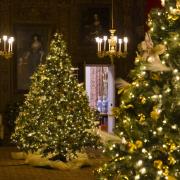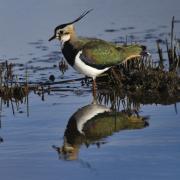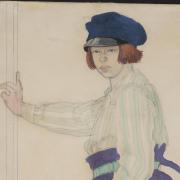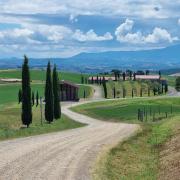Arriving in the dark there are stars in the sky, a chill in the air and the only sound is the song of the Nightingale. The yawns and heavy eyes of the early start are soon forgotten as you marvel at the rich melodious notes, piping calls and bizarre frog-like croaks of this most celebrated songster.
As dawn breaks other voices join in with the concert, the wistful tune of the Robin and the shouty Wren. The early-to-rise are eventually joined by others including the twittering finches, and musical warblers.
One of the greatest gifts the natural world gives us is the dawn chorus, that cacophony of birdsong that eases us from the depths of sleep and introduces a new day. This time of the day is ideal for birds trying to attract a mate as the cool dense air and lack of background noise means their song will carry 20 times further. It’s a declaration from the male birds: ‘I’m awake, I’m handsome, strong and I have this wonderful patch where we can nest and raise a family!’
This gives the female birds chance to assess their suitors; does the rich, complex song mean he is a mature, experienced male? Is he full of energy and vigour – a sign that his territory provides a plentiful food supply?
Birdsong is largely associated with male birds – females do have the ability to sing, but in most species they rarely do. Singing uses up energy and draws attention which could make you more vulnerable to predators.
Our Nightingales arrive at RSPB Pulborough Brooks in April having made their way from Africa, crossing the Sahara Desert, the Mediterranean and the English Channel to get to us. I can legitimately claim them to be ‘ours’ as migration studies using satellite tracking have shown that Nightingales are site faithful – they tend to return to the same place to breed every year. Nightingales migrate by night so the males arrive first, claim a territory, and then start to sing through the night in the hope of tempting a migrating female to drop down and take a closer look.
Nightingales are our virtuoso performer, a songster who has inspired poets and authors for centuries. This species is rather choosy about where they nest so you’ll need to visit somewhere like RSPB Pulborough Brooks, with its ponds, woodland, hedgerows and dense pockets of bramble and spiky blackthorn to hear them.
But other songsters can be enjoyed from the comfort of your own home or even from your bed! Listen for the mellow tune of the Blackbird who sings as though he is strolling along, hands in his pockets, whistling as he goes. Then there is the ‘squeaky-bicycle pump’, also known as the Great Tit who you’ll hear calling ‘tea-cher, tea-cher’. The Song Thrush offers a string of different phrases, seemingly unable to settle on just one. He’ll repeat his phrase of choice two or three times before changing his mind and moving on to something new. A signature song is ‘did he do it?, did he do it?, did he do it?’ then ‘yes he did, yes he did, yes he did’.
As the sun begins to creep over the horizon and cast dappled light through the trees, the birdsong will dwindle as new priorities take over; hungry tummies must now be filled, both the birds and ours. I am glad that the café is open for breakfast!
To join a dawn chorus walk or night-time safari at RSPB Pulborough Brooks, or at RSPB Pagham Harbour, near Chichester visit www.rspb.org.uk



























